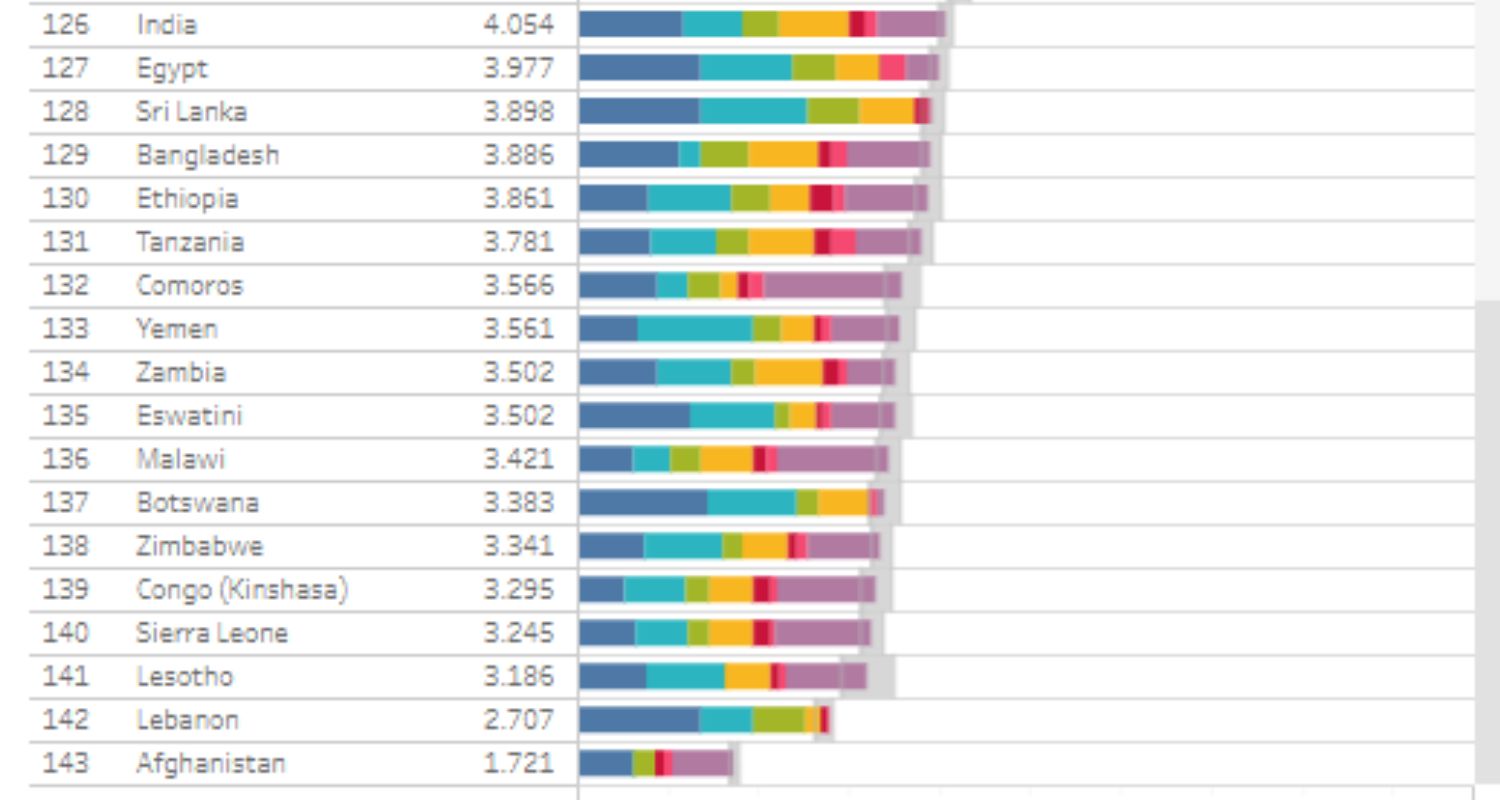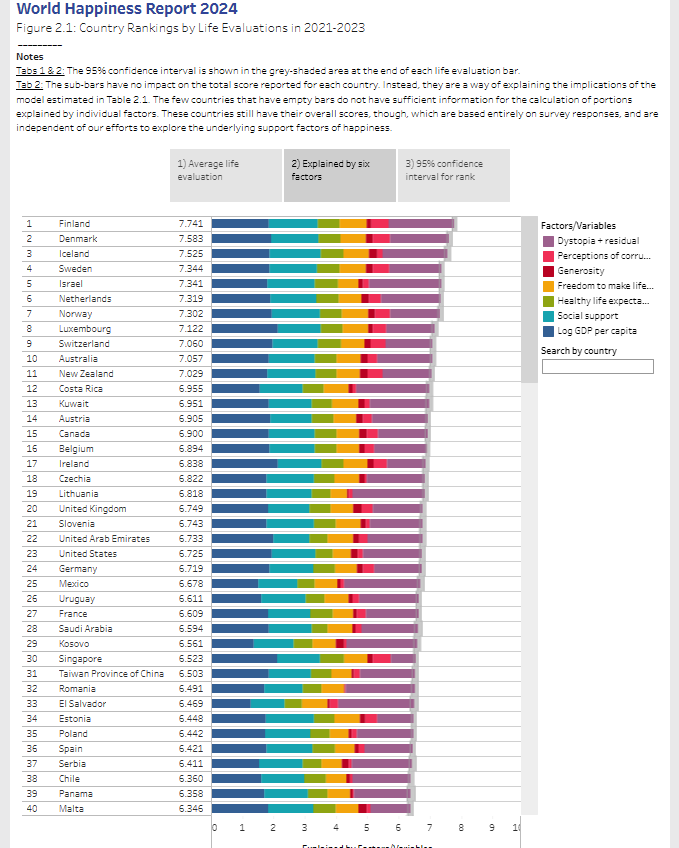The World Happiness Report, released this week, reaffirms the dominance of Nordic countries in fostering national contentment.
Finland retains its top spot for the seventh consecutive year, with Denmark, Iceland, Sweden and Israel rounding out the top five.
The report's methodology delves into the reasons behind national happiness, based on individuals' personal evaluations of their life satisfaction, coupled with factors including GDP per capita, social support, life expectancy, freedom, generosity, and corruption levels.
Notably, India's ranking remains unchanged at 126th position.

Presented below are the top 10 happiest countries in the world:
-
Finland
-
Denmark
-
Iceland
-
Sweden
-
Israel
-
Netherlands
-
Norway
-
Luxembourg
-
Switzerland
-
Australia

The report sheds light on some interesting trends.
India's consistent ranking at 126 reflects both its strides and challenges on the happiness spectrum as citizens grapple with various socio-economic complexities, highlighting the need for concerted efforts to elevate overall well-being.
The absence of the United States and Germany from the top 20 is notable, signaling a potential shift in global happiness dynamics.
Despite their economic prowess, these nations face internal challenges that impede the pursuit of happiness on a national scale.
Eastern Europe offers a contrasting narrative. Countries like Serbia, Bulgaria and Latvia have registered the most significant happiness gains, showcasing a potential shift in these regions. On the other hand, Costa Rica and Kuwait have made their entry into the top 20 list, with Costa Rica securing the 12th spot and Kuwait claiming the 13th position.
Afghanistan, Lebanon, and Jordan experienced the most significant decline in happiness since 2006-10, while Eastern European nations like Serbia, Bulgaria, and Latvia reported the most substantial increases.
Jennifer De Paola, a happiness researcher from Finland, stressed on the importance of nature connection and a healthy work-life balance in fostering Finnish contentment.
Furthermore, De Paola proposed that Finnish individuals may possess a more grounded understanding of what defines a fulfilling life, contrasting with countries such as the United States, where success often equates primarily to financial wealth.
Moreover, Finland's comprehensive welfare system, unwavering trust in governmental bodies, low levels of corruption, and widespread access to free healthcare and education play pivotal roles in bolstering the nation's collective happiness.
Interestingly, the report highlights a generational divide in happiness levels.
During the period from 2006 to 2010, there was a notable decrease in happiness among individuals under 30 in North America, Australia, and New Zealand.
This trend has resulted in a scenario where older generations now typically report greater levels of happiness than their younger counterparts.
In contrast, Central and Eastern Europe experienced a substantial increase in happiness across all age groups during the same timeframe.
Individuals of all age brackets in Western Europe reported similar levels of happiness.




